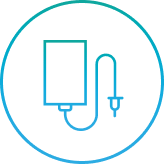


The Pulse-1 study is a Phase 1b clinical trial enrolling people who are at high risk of serious cardiovascular events, such as heart attack or stroke, due to high cholesterol levels. The Pulse-1 study will help determine if a single dose of an investigational medicine, called VERVE-201, can safely reduce low-density lipoprotein cholesterol (LDL-C) in people whose LDL-C remains high even after taking currently available medicines.
Having high LDL-C levels increases the risk of serious cardiovascular events, such as heart attack or stroke. Lowering LDL-C levels is one of the best ways to reduce these risks.
Up to 36 people in several countries will take part in the Pulse-1 study. Participants will be involved in the trial for up to one year after receiving VERVE-201. After the study is over, participants are expected to join a long-term follow-up study to help researchers understand the safety of VERVE-201 over a longer period.


Participants in the Pulse-1 study will have the opportunity to contribute to the development of a potential new medicine that may help them and other people with high LDL-C, perhaps including family members, in the future. Study participants will receive VERVE-201, which may permanently reduce LDL-C levels. However, it is important to note that the safety and effectiveness of VERVE-201 is still being studied.











Your information is stored in a HIPAA-compliant database and provided to the trial sites for follow-up as appropriate. For further information, please see our privacy policy page.

© Verve Therapeutics. All Rights Reserved.